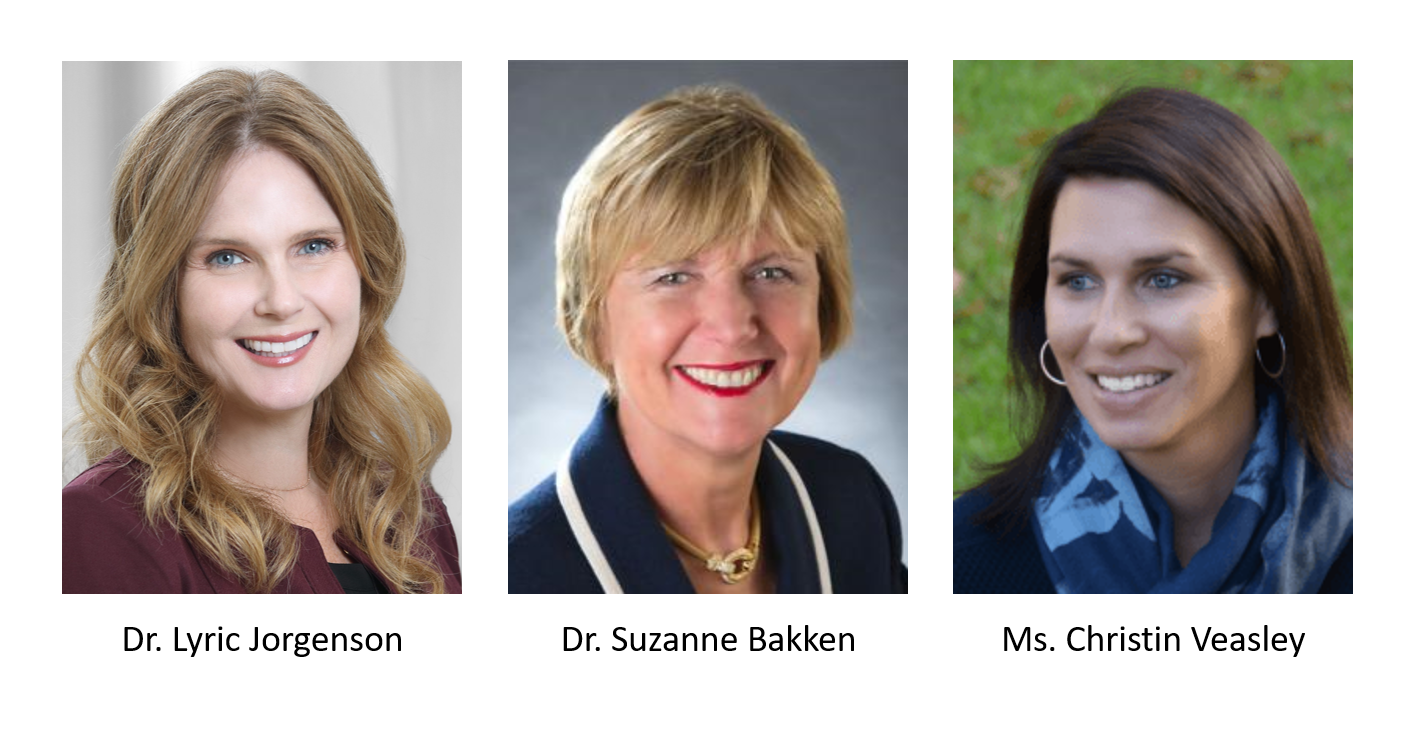Dr. Lyric Jorgenson (l) has co-authored this blog with Dr. Suzanne Bakken (c) Ms. Chrstin Veasley (r). Dr. Bakken is a Professor of Biomedical Informatics at Columbia University. Ms. Veasley is the co-founder and Director of the Chronic Pain Research Alliance. Dr. Bakken and Ms. Veasley also serve as the co-chairs of the NIH ENGAGE Working Group.
I’m sure many of you have heard the old joke “Why do we park on driveways and drive on parkways?” Sometimes the English language just doesn’t make sense. Other times, however, it feels completely intuitive. Take for instance, the word “engage.” Just speaking the word aloud feels like a call to action. Appropriately, NIH launched its new ENGAGE initiative to be just that – a call to action for people and their communities to participate in the design and conduct of clinical research.
Traditionally, those who could benefit the most from clinical research have had the least involvement. The ENGAGE initiative aims to flip this script by making public involvement in clinical research the rule and not the exception. By amplifying public voices, both healthy and sick, scientists can design more meaningful research studies and all Americans can benefit from the investment.
The team tasked with making this vision a reality consists of a diverse set of motivated experts with many practical hands-on experiences, including patients, advocates, researchers, clinicians, non-profit organizations, and of course, members of the public. They’ll be working to develop a bold strategy for maximizing public involvement throughout the clinical research continuum for NIH’s consideration.
We cannot stress enough the prominent role that public outreach and community dialogue will play in the ultimate success of ENGAGE. At this point, you might be asking yourself how we are planning to take on such an enormous task. First, we are shouting from the rafters that ENGAGE is open for business and we want to hear from you. To help promote awareness, NIH has launched an ENGAGE website which contains case studies on NIH’s approach to engagement, information on team members, details on planned events, and much more.
The second part requires you – “engagement” is a two-way street! We need everyone to help us spread the word about ENGAGE. To get us started, NIH has released a request for community information to share the team’s vision and help us get a sense of your thoughts on these issues. Tell your co-workers, your neighbors, your friends, and anyone else who will listen that NIH wants to hear from you!
An essential pillar of our work will be to interact with people in ways, and in places, where they feel comfortable. This means that it is vital for the team to visit communities across the country to hear your stories and needs first-hand. The success of ENGAGE will be built on a robust program of public involvement in people’s own communities. We anticipate these listening sessions to kick-off in late 2024 and details will be provided on the ENGAGE website as soon as they are available.
We expect a lot of progress over the course of the next year so stay tuned. Also, to learn more, please tune into the upcoming Novel and Exceptional Technology and Research Advisory Committee (NExTRAC) on June 17th as we will be discussing more on our planned efforts, including an upcoming webinar on July 17th.
This is just the start of a very exciting activity. The ENGAGE initiative holds tremendous potential, but we need your help. By creating a respectful space where all perspectives are welcome, we can work together to ensure that ENGAGE = better health for everyone.





